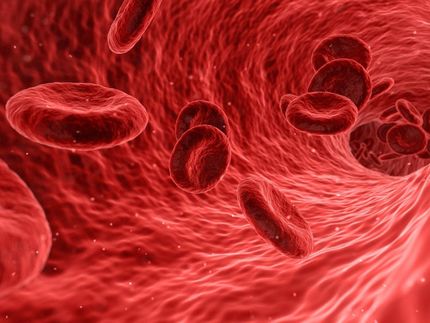Successful cure of HIV infection after stem cell transplantation
The "Düsseldorf patient" is the third person in the world to be completely cured of the HI virus by a stem cell transplant
Haematopoietic stem cell transplantation for the treatment of severe blood cancers is the only medical intervention that has cured two people living with HIV in the past. An international group of physicians and researchers from Germany, the Netherlands, France, Spain, and the United States has now identified another case in which HIV infection has been shown to be cured in the same way. In a study published this week in Nature Medicine, in which DZIF scientists from Hamburg and Cologne played a leading role, the successful healing process of this third patient was for the first time characterised in great detail virologically and immunologically over a time span of ten years.

Symbolic image
Unsplash
An infection with the human immunodeficiency virus (HIV) was previously considered incurable. The reason for this is that the virus "sleeps" in the genome of infected cells for long periods of time, making it invisible and inaccessible to both the immune system and antiviral drugs. The "Düsseldorf patient", a 53-year-old man, is now the third person in the world to be completely cured of the HI virus by a stem cell transplant.
The patient, treated at the University Hospital Düsseldorf for his HIV infection, had received a stem cell transplant due to a blood cancer. As in the cases of the first two patients named "Berlin" and "London", the Düsseldorf patient received stem cells from a healthy donor whose genome contains a mutation in the gene for the HIV-1 co-receptor CCR5. This mutation makes it impossible for most HI viruses to enter human CD4+ T-lymphocytes, their major target cells.
Following transplantation, the patient was carefully monitored virologically and immunologically for almost ten years. Using a variety of sensitive techniques, the researchers analysed the patient's blood and tissue samples to closely monitor immune responses to HIV and the continued presence or even replication of the virus. Already shortly after transplantation and over the entire course of the study years, neither replicating virus nor antibodies or reactive immune cells against HIV were detected. More than four years ago, the antiviral therapy against HIV was discontinued. Ten years after transplantation and four years after the end of anti-HIV therapy, the Düsseldorf patient could be declared cured by the international research consortium.
"This case of curing a chronic HIV infection by stem cell transplantation shows that HIV can in principle be cured," says Prof. Julian Schulze zur Wiesch, DZIF scientist at the University Medical Center Hamburg-Eppendorf and one of the study leads. "In particular, the results of this study are also enormously important for further research into a cure for HIV for the vast majority of people living with HIV for whom stem cell transplantation is not an option.”
Original publication
Other news from the department science

Get the life science industry in your inbox
By submitting this form you agree that LUMITOS AG will send you the newsletter(s) selected above by email. Your data will not be passed on to third parties. Your data will be stored and processed in accordance with our data protection regulations. LUMITOS may contact you by email for the purpose of advertising or market and opinion surveys. You can revoke your consent at any time without giving reasons to LUMITOS AG, Ernst-Augustin-Str. 2, 12489 Berlin, Germany or by e-mail at revoke@lumitos.com with effect for the future. In addition, each email contains a link to unsubscribe from the corresponding newsletter.


















































